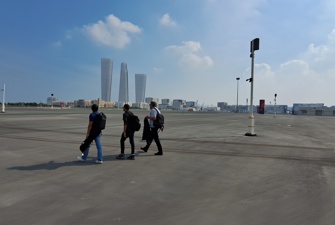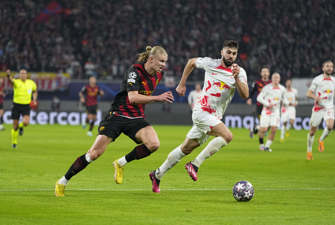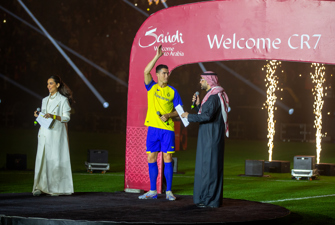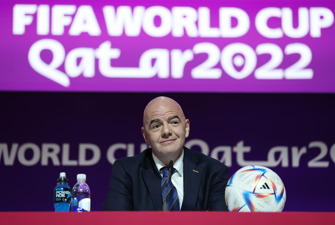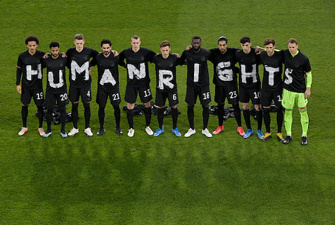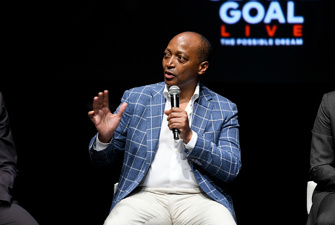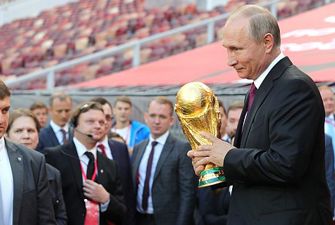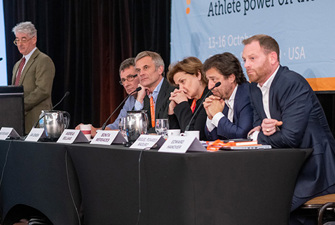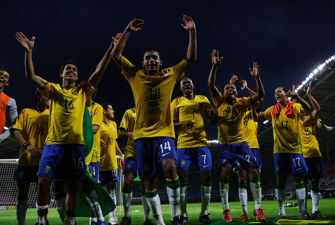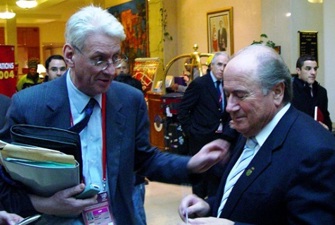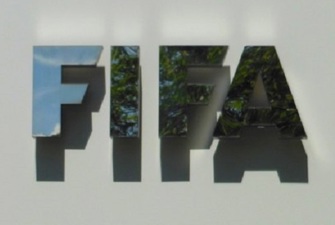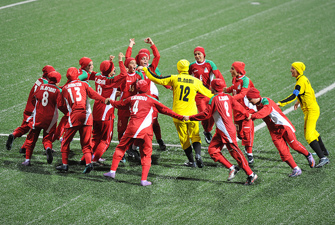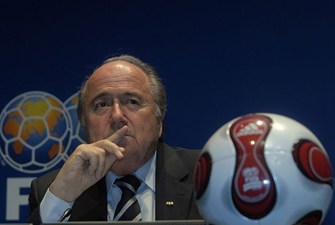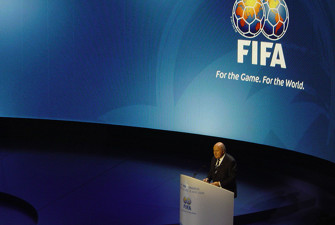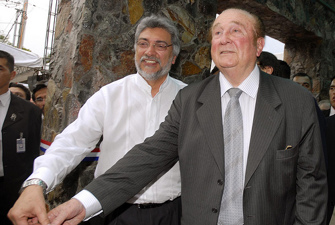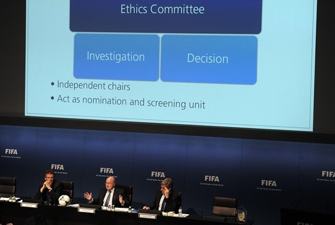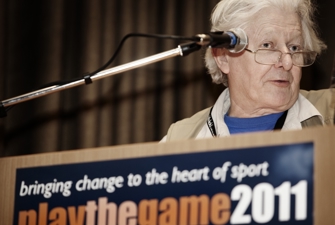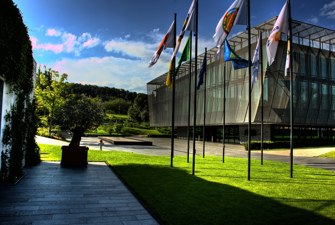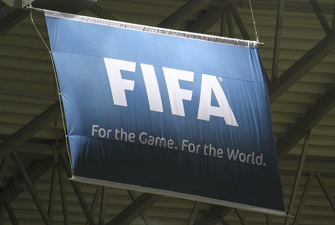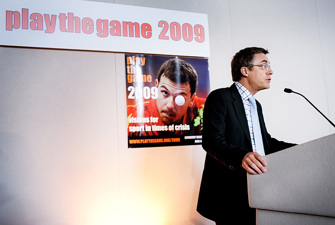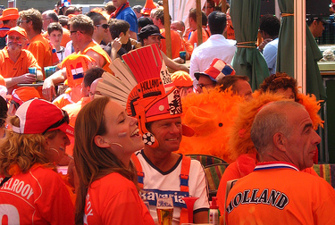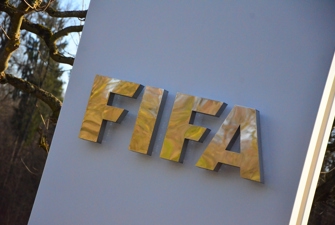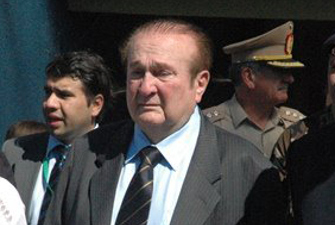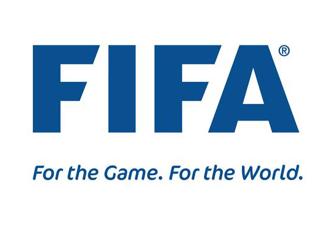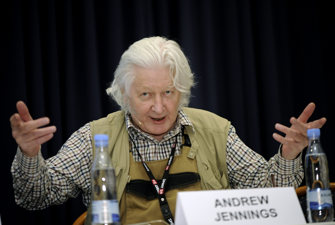FBI vs. FIFA: How deep an impact?
OPINION: The combined U.S. and Swiss police raid on FIFA top men at Hotel Baur au Lac five years ago was a watershed moment in global sport. The impact has been undeniable, but how long will it last? Play the Game’s Jens Sejer Andersen shares his thoughts about the credibility of FIFA reforms.
Having followed international sport and its endless trickeries for a couple of decades, my answer to the typical question opening an interview – “Are you surprised that X, Y Z, has happened?” has become quite predictable:
“Not really”.
Let alone that I never understood why my emotions would have relevance in the context of larger sports scandals. Nevertheless, I ask the reader to tolerate a personal touch in the following lines.
Because Wednesday 27 May 2015 was indeed different. The coordinated raid of Swiss police and the FBI that led to the arrest of seven top FIFA officials as they were barely awakening in their luxury rooms at Hotel Baur-au-Lac in Zürich, sent shock waves through the world of sports officials – and waves of hope through millions of fans.
This raid was indeed a surprise. Play the Game’s good friend, the incomparable sports corruption reporter Andrew Jennings, had for some years been talking about his contacts to the FBI. But I and many others feared the FBI could have plenty of reasons to shelve the case early. Why would American authorities take action against an international sports federation in Switzerland, related to a sport they do not even use the globally recognised name for?
It was later revealed that some Americans actually cared for soccer, and a few of them had a job in which they already fought against tax evasion and corruption in general. So, they decided to follow every single link they could find between American legislation and FIFA corruption. For the full account, you can read Ken Bensinger’s riveting book “Red Card”.
What should have been a surprise was that it took so long. Seven years earlier, in March 2008 in the Swiss court of Zug, a handful of former directors of international sport’s dominant marketing company, the ISL, willingly testified about their corrupt, but legal, business practices. They had paid out bribes “like salaries” worth 142 million Swiss Francs – more than 100 millon USD.
And yet, FIFA and the Olympic family managed to keep this fact out of the public debate. A top IOC official told me in 2009 how worried they were about FIFA corruption, but the IOC never acted as they could and should. The international media ignored the systemic corruption scandal, exception taken of Andrew Jennings and the German investigative journalists Jens Weinreich and Thomas Kistner, who were the only international reporters in the Zug court that decisive day.
With the frustrating silence surrounding the ISL scandal in mind, the FBI raid in 2015 was even more of a surprise.
The number of those arrested, the even larger list of suspects, the financial scope of the corruption – at the time 100 million USD was mentioned, an amount that would soon be more than doubled – and the fact that the U.S. Attorney General used anti-mafia legislation to nail the sports leaders… this was all breath-taking.
Even at a time where FIFA corruption had finally become a mainstream issue in international media and sports politics, most observers – including myself – was overwhelmed by the size and complexity of this completely new corruption scandal.
Learned to love the FBI
On that day, I think every anti-corruption activist in sport learned to love the FBI. The resolute action, the many arrests, and the determination of the Americans to hold corrupt sports leaders to justice inspired fear and anxiety among international sports leaders, and it inspired relief and hope among those of us who had for too long waited for something to happen.
For Play the Game, there was even a moment of pride when we learned last year that two of the lead investigators, Steven Berryman and Evan Norris, had used our website as an important source of information when they started their research into FIFA around 2010 – at a time when sports leaders used to tell us that the information we promoted was negative and unhelpful.
In which mood can we celebrate the anniversary?
Did the FBI raid at the end lead to radical change in football and beyond? We got a new FIFA President one year later, when Gianni Infantino replaced Sepp Blatter, but did we also get a new FIFA?
The jury is still out.
It is my belief, and I may be naïve, that the reforms carried out five years ago did give us a different FIFA, and a better one in some aspects. I think that the internal checks and balances are stronger, and that less power than before is vested in one very small group of corrupt allies.
For instance, I don’t think the FIFA President today could give the UEFA President a consultancy fee of 2 milllion CHF with over ten years delay, under politically sensitive circumstances and without any registration of the payment, such as when Sepp Blatter paid this amount to Michel Platini just before the FIFA presidential elections in 2011.
I don’t think either that FIFA’s President, Secretary General, and Financial Director can now grant each other bonuses worth 80 million USD without informing anyone else, such as Sepp Blatter, Jerôme Valcke, and Marcus Kattner did in the same period that they promised the world FIFA had become fully transparent.
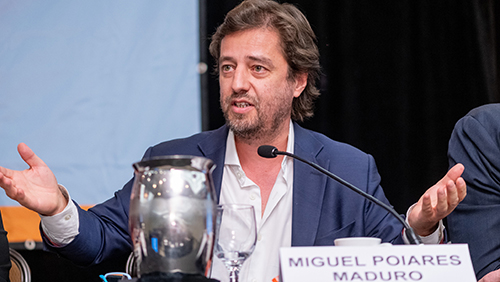 Miguel Maduro blocked Russian minister Mutko from being elected to FIFA’s council. Soon Maduro’s career in FIFA came to an end. Photo: Thomas Søndergaard/Play the Game
Miguel Maduro blocked Russian minister Mutko from being elected to FIFA’s council. Soon Maduro’s career in FIFA came to an end. Photo: Thomas Søndergaard/Play the Game
I think the separation of powers has become better, and that the control with FIFA payments to national federations has improved. You may argue that it couldn’t possibly be worse.
Infantino’s behaviour
However, we are very far from a new FIFA that has earned public confidence, such as Gianni Infantino promised when he was elected. Infantino’s own behaviour is one of the reasons why FIFA still is surrounded by scepticism. A few examples:
- A key element in the reforms was the establishing independent committees of ethics and governance. However, there are several examples that when these committees makes decision that goes against the interests of the Infantino, their chairpersons are dismissed. When for instance the Portuguese professor Miguel Maduro in 2017 blocked the then Russian deputy prime minister and Russian FA President Vitaly Mutko from being reelected to a seat in the FIFA Council, citing FIFA rules on political neutrality, Mutko’s FIFA career ended, but so did Maduro’s shortly after.
- FIFA’s decision to put its Secretary General Fatma Samoura in charge of the African Football Confederation (CAF) was a violation of CAF’s autonomy. Moreover, it did not convince anyone that her displacement did solve corruption problems in African football. On the contrary, FIFA stills conceals a report by the audit firm PriceWaterhouseCoopers documenting corruption for millions of dollars by CAF leaders, including CAF President Ahmad Ahmad, who is also investigated by French prosecutors. Embarrassing for Infantino who – also in conflict with FIFA rules - lobbied actively to get Ahmad elected as African football president in 2017.
- Most worrying, in my view, are the three secret meetings Infantino has with the Swiss Attorney General, Michael Lauber, revealed by Football Leaks, Süddeutsche Zeitung and Le Monde. Lauber has been sanctioned for not reporting these meetings and a procedure to remove him from his position has been started by the Swiss parliament. But why has Infantino tried to hide these meetings? Were they aimed at neutralising legal procedures against FIFA and himself? Are they the reason no court case has been raised in Switzerland, since the Swiss police entered Baur au Lac together with their much more efficient American colleagues?
- In fact, Infantino’s first contacts to other leading Swiss judicial officers, took place in the summer of 2015, just after Blatter had declared he would resign. A few months later, the above-mentioned payment from Blatter to Platini was leaked to the Swiss authorities who then started a criminal investigation against both men. As a consequence, UEFA President Platini was removed from the race to become Blatter’s successor by FIFA’s own Ethics Committee, and the doors for a candidature were opened for a substitute: UEFA’s then Secretary General, Gianni Infantino. Did Infantino use his inside information from UEFA and his contacts in the Swiss authorities to get rid of the strongest contender for the FIFA Presidency? Infantino has so far given none or very unconvincing answers.
One-nation, one-vote
There may be a more fundamental reason for the lack of progress in FIFA reforms. The principle of “one nation, one vote” that rules FIFA like most other international sports federations, makes thorough reform almost impossible.
It has been described as the most democratic system, and sports leaders often refer to the United Nations for comparison. Both assumptions are wrong.
It is true that every nation has a vote in the United Nation’s General Assembly. That is why the superpowers of this world would never leave a strategically important decision to that group. Such decisions are taken by the Security Council where the superpowers are in control and equipped with veto rights.
Secondly, it is not particularly democratic to regard the nation as the basic component of sports democracy. The real constituent should be the athlete. If every national federation would have votes in international sport according to the number of active athletes, the system would be much more in balance.
As of today, in FIFA and elsewhere, the system favours small nations, regardless of their success to generate real sports participation. Many of these nations are underprivileged and poor, and they have too often given rise to sports leaders that were more interested in personal power, prestige and wealth than to secure sports activity in every corner of their country.
Nurturing greed
It is fair to say that over the past decades, FIFA and many other sports organisations have nurtured this kind of sports leaders rather than tried to side-line them. Since the mid-1970’ies, FIFA presidents have been elected and re-elected on one fundamental promise: That they would increase the revenues from broadcasting and marketing rights and make sure every single federation would get a constantly growing piece of the cake.
This has created a political culture of greed that will be difficult to break down. Infantino is no exception. When first elected, he was the candidate with the most generous promises to the member federations. His challenge is that FIFA’s revenues have stopped growing at the same speed as before, mostly due to the worsening reputation caused by the corruption scandals.
Infantino has promised more than FIFA can deliver, and he has therefore cast his net out to catch new, superrich donors. This explains his attempt to force through an agreement with a Saudi-backed coalition that in 2018 promised no less than 25 billion USD over 13 years in return for a number of commercial rights and new global tournaments for clubs and national teams.
This may also explain his willingness to assist the Saudis in an attempt to water down Qatar’s success in hosting the World Cup 2022 by expanding the tournament to 48 teams – an expansion that would require that Qatar shared the hosting – and the prestige – with neighbour nations that work with the Saudis against Qatar in regional conflicts.
Both attempts failed due to resistance from other parts of the world, most notably from Europe. But the battle of FIFA’s future finances is not over. If Infantino can convince the dominant European clubs – Real Madrid, Barcelona, Manchester City, Bayern Munich, and their likes – that FIFA can offer better long-term business in a global tournament than they get now in Champions League, who knows if the big clubs will remain loyal to the association-based European football?
Maybe Infantino can find some political comfort in the current corona crisis, which will for some time end the wild upward spiralling of the global football economy. It gives Infantino a good alibi for explaining that money no longer grow on trees.
Chinese ambitions
The FIFA reforms will be challenged soon again, when FIFA will select a host for the 2030 World Cup As part of the 2015 reforms, the decision about which country should host the World Cups was moved from the Executive Committee (now called the Council) to the General Assembly. This was intended to make decision-making more transparent and minimize the risk of corruption.
China is expected to bid for the World Cup as a step towards becoming a football superpower, and so is Uruguay, in cooperation with Argentina, in order to celebrate the 100 years since the first FIFA World Cup in Montevideo in 1930.
Chinese companies has already stepped in to FIFA’s rescue, just as Western multinationals have pulled out of FIFA in the past decade, worried about how FIFA’s worsening image would reflect on their own. And it is not hard to see how a new geopolitical battle will unfold, with Chinese diplomats asking heads of state in developing nations across the world to support China’s World Cup bid as an easy gesture of gratitude for new or continued Chinese investments.
Many heads of state are already deeply connected to their country’s football structures, and they have good opportunities to convince their football federation how to cast its vote in 2024, when the decision about the World Cup 2030 is taken.
The former FIFA was surely corruptible, and removing the right to appoint World Cup hosts from a small group of men at FIFA’s top was probably well-intentioned.
But the battle to become the next World Cup host will take place all over the world, in closed meetings and secret conversations between top politicians, diplomats, bureaucrats, and football leaders.
How likely it is that this process will happen in a democratic, transparent and corruption-free FIFA as we dreamt about the 27 May 2015?
If I should pick one lesson from a generation of FIFA scandals, it is that outside pressure will decide the success of any football reform. Whistleblowers, athlete organisations, fan groups, investigative journalists, and public prosecutors still have a job to do.






